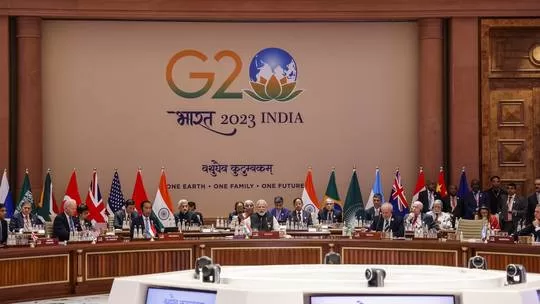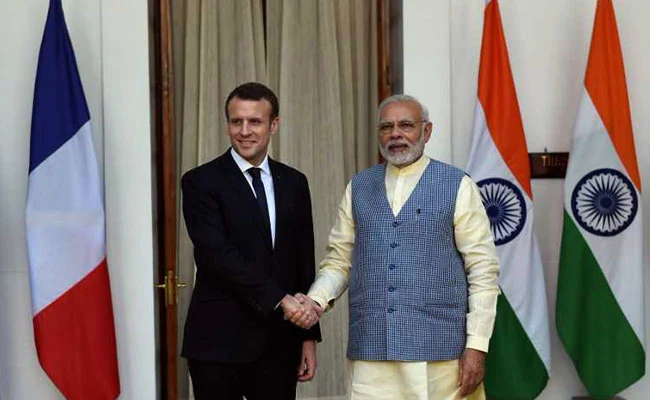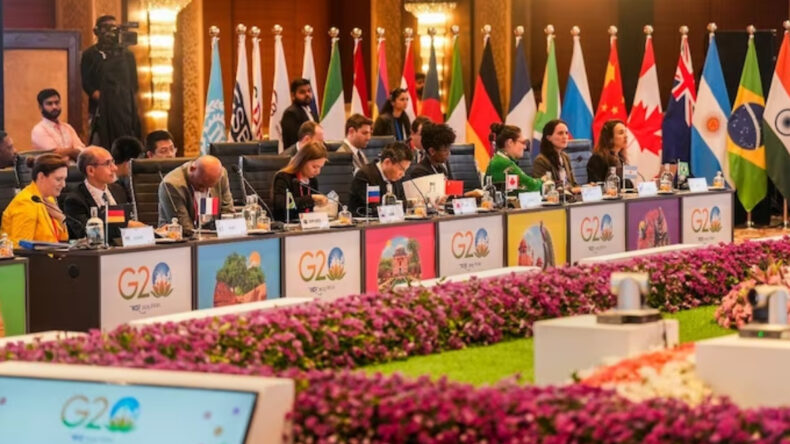The G20’s disagreements over Russia’s invasion of Ukraine had been anticipated to be broad and severe to allow for an agreement for a unified proclamation at the leaders’ summit in Delhi. But India’s negotiators, working with other nations’ teams, achieved the New Delhi proclamation.

Following are some conclusions from the meeting:
Table of Contents
1. G20 Summit: Delhi’s Spectacular Success
India is celebrating reaching an agreement on the New Delhi Declaration at the G20 conference in Delhi. This was accomplished by deciding that it was not necessary to specifically address Russia’s invasion of Ukraine. Instead, the subject that has divided the globe for the past 18 months and was the most contentious one at the G20 – even during the G20 ministerial sessions under the Indian chair – was dealt with in terms that Russia and China could agree.
The New Delhi Declaration referred to “the war in Ukraine” as opposed to last year’s Bali Declaration, which referred to Russia as the aggressor and demanded that it unconditionally withdraw all of its forces from Ukraine. In contrast to Bali, there was no censure of Russia either.
The consensus underlined an impulse within the Western bloc to avoid giving India, a nation that the US is actively courting in order to limit China on a geopolitical level, the appearance that the G20 had broken down. To give India a diplomatic advantage, the US and other Western G20 members opted to soften the wording of the war.
It additionally served to avoid parallels to the China-dominated BRICS, which, albeit being portrayed as “fractious, ” reached a consensus at its meeting last month.
The declaration of a dedicated economic corridor, a geopolitical rival to China’s Belt and Road Initiative, would directly link the EU, the Middle East, and India with one another via rail and waterways, as well as economically unite the three regions through trade and digital infrastructure, served as the West’s gift during one of the G20 summit sessions.
The G20’s agenda is currently viewed as beginning to shift from being formed and steered by the wealthier G7 nations that have commanded it from its very beginning to being more reflective of the emerging economies at the time of India’s chairmanship.
The summit, according to the chairman of the Russian mission, Sergei Lavrov, was successful for both India and the Global South.
2. Softening Towards Russia
The summit proclamation may be a precursor to a change in the US and the West in addition to reflecting the viewpoint of the developing countries on the conflict.
The Ukrainian military effort has received billions of dollars from the US. However, public weariness is starting to emerge in the US as a result of Russia demonstrating its invincibility on the battlefield and the Ukrainians’ inability to prove a victory over the past nine months.
Officials from the US and Europe openly supported the rhetoric used to describe the conflict in Ukraine and were adamant that Russia had lost. The summit declaration “does do an excellent task of stepping up for the belief that states cannot employ force to seek the acquisition of territory or to infringe the territorial integrity, sovereignty, or political independence of other states,” according to Jake Sullivan, the national security adviser for the White House.
The G20 statement, according to French President Emmanuel Macron, has alienated Russia. He asserted that the G20 is not always a venue for political debate where the war in Ukraine would likely advance diplomatically. “We’re here to discuss the economy and the current state of the world (crisis). G20 should not become bogged down in these problems, he stressed.

However, the jubilant tone of the Russian foreign minister made it clear that there was a perception that Western tensions with Russia had subsided. The West’s efforts to “Ukrainize” the summit’s agenda were defeated, according to Lavrov.
3. Additional Candidates For The “Voice Of The Global South”
Despite the many factors contributing to the efficacy of the Delhi summit, the Modi government and the BJP will undoubtedly portray the success of bridging the strategic divide as an accomplishment for Modi and India’s acknowledgement as the “Vishwa guru” of global politics in the coming electoral season based on the exorbitant projection of Prime Minister Narendra Modi on billboards throughout the capital and in all of the states where the G20 officials had held conferences prior to the summit.
Modi-led India is not the only country in the developing world to make this claim, though. If Brazil, Indonesia, and South Africa had not supported India, the New Delhi Declaration might not have been feasible. As he praised all participants for their attempts to reach an agreement, external affairs minister S. Jaishankar listed these nations with which India had a “solid history of cooperating together” at his press conference on Saturday. These nations also demonstrate the fact that the global South is not a homogenous group and that each has individual goals for the international arena. Using its leadership of ASEAN, Indonesia, which held the 2022 G20 chair, has assumed the initiative in addressing the shortcomings in Myanmar.
The economy of Indonesia is expanding steadily. In contrast to India, it remains to draw strength from its history as an independent state and from its independence hero, President Sukarno, and leverages its favourable position in the Malacca Straits to conduct business with both China and the US while refusing to join with any side.
Brazil, which is sixth in terms of population in the world and the most powerful nation in Latin America, will take over as G20 chair from India later this year. Luiz Inácio Lula da Silva, better known as Lula, is its Marxist president and a major player on the international stage. He has started reversing his predecessor Jair Bolsonaro’s isolationist foreign policy and reestablishing Brazil’s position in the globe as an influential voice of the developing world. He is a hard multilateralist who advocates in diplomacia activa e altiva (a foreign policy that is dynamic and prominent).
Brazil, a candidate for a permanent seat in the UN like India, has adopted a neutral position in regard to Russia’s invasion of Ukraine. In February 2022, it backed a US-sponsored UN resolution urging that Russia evacuate its soldiers from Ukraine, but Lula has also slammed the US for “promoting” Ukraine while on an official trip to China. Like Modi, Lula wants to appear as though he is trying to put a stop to the conflict. To negotiate a stop to the war, he has advocated for diplomatic endeavours in the shape of a “peace club” of neutral states.
4. AU Membership
One of the most significant effects of the Delhi summit is thought to be the admission of the African Union. The incorporation of the Union, which unites all 55 African nations and has a combined GDP of $2.99 trillion, was supported by India, which claims responsibility for this. Senegal President Macky Sall, a former AU leader who supported the campaign for inclusion, hailed the membership, which the AU was seeking for seven years.
However what the AU can accomplish for the African continent as a G20 participant will rely on how well it can unite its members, whose economies are diverse in size, goals, and geopolitical objectives. The administration of the AU has always been a source of controversy, particularly when it comes to issues of stability and safety.
It will additionally rely on how South Africa, one of the continent’s biggest economies and aspirant to a permanent UNSC membership, assesses how the addition of a new member would affect its status within the alliance.
5. China’s Subdued Influence
The absence of Chinese President Xi Jinping at the meeting and the involvement of China being downgraded to that of Premier Li Qiang was an indication that the geopolitical split in the globe still exists, notwithstanding the goodwill of the Delhi Declaration agreement.
India is at the centre of everything, with its strong acceptance of the US amid rigorous balance. A Chinese research group connected to the Ministry of State Security charged Delhi of exploiting its G20 presidency to put geopolitical “private goods” on the world stage prior to the summit; this accusation appeared to be in connection with the summit talks being held in Arunachal Pradesh and Jammu and Kashmir.
The consensus agreement was approved by China as well, but it made clear in its signature that it would not accept the “spoiler” label. Premier Li made no remarks about the Declaration. Beijing appears to have chosen to utilise the Sanskrit word “Vasudaiva Kutumbakam” for purposes of its own, in contrast to its reportedly prior opposition to India’s application of the expression.













